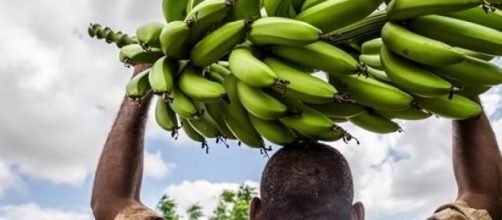In 2013, Oxfam launched a campaign to reveal whether the production process of the 10 world's biggest food and beverage companies respects international human rights labour standards and fair-trade conditions for workers in developing countries. The campaign takes a look at publically available information on the agricultural sourcing policies of the top companies that produce what we buy, eat and drink everyday.
The rationale behind the campaign, labeled "Behind the Brands", is that major food companies are influenced by the consumers' opinion, since the sell of their goods ultimately depends on the consumers' tastes and willingness to buy certain products.
Up until now, the common trend has been to stop buying food and beverages that were related to uneven production processes in regard to workers conditions, child labour, women empowerment and health settings in the workplace.
Thanks to Behind the Brands, the imperative "no rights, no buy" seems to be now out to date. The campaign looks at the relation to trade and development in an innovative way and aims at influencing the behavioural assets of food production companies by bringing forward the adoption of common legal mechanisms that protect workers in developing countries.
The means utilised to this end consists in the creation of an index, labeled "Scorecard", referring companies' policies in a variety of issues from water to women.
The seven themes covered - land, women, farmers, workers, climate, transparency and water- are given equal weight. The Scorecard showcases the adoption of human rights standards within a company's business environment, providing a comprehensive image of how multinational corporations impact the life of farmers and workers that make the products that arrives on our dining tables.
Combining the capitalist competition principle with non-for-profit ideals, companies have been battling their rivals directly above them in the Scorecard in an attempt to move up the rankings and attract more consumers. The campaign considerably improved business and human rights standards in the food and beverage market, in a way that enables publicly available information on policies and commitments to reach consumers.
The prime goal is to raise awareness and foster dialogue between companies, civil society and industry experts. After two years of campaigning the pressure is making a difference. People have taken over 700,000 actions demanding more from the "Big Ten" companies and their scores are starting to improve. Success stories include the adoption by Coca Cola and Pepsi of policies on specific workers rights, in a continuous heavyweights battle for the number one spot.
However, it is clear that there is still a lot of work to be done. One area that appears to be a major fragile spot for the majority of companies is the absence of investment and funding to farmers in their supply chain, with half of the Big Ten scoring 2/10 on the farmers theme.
If we combine this issue with growing climate change consequences affecting farmers and companies themselves, it becomes evident that we need to see mounting action on the way business impacts human rights, for people and the planet.
Since civil society emerged as a powerful force in today's business environment, this might be the right way to keep the pressure on companies to move them from policy to practice.
Access Behind the Brands Scorecard on Oxfam website to make the global food system work for all.

